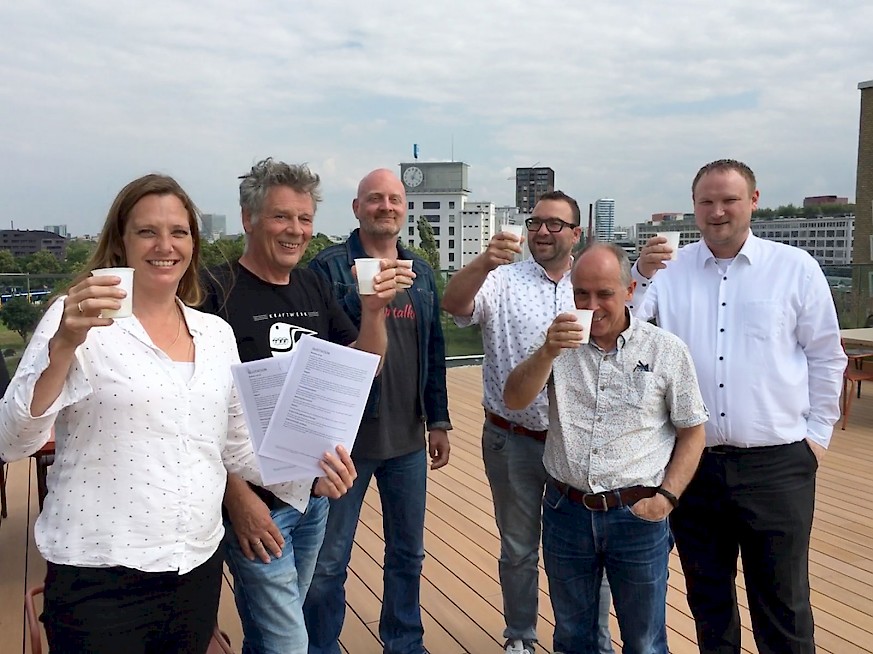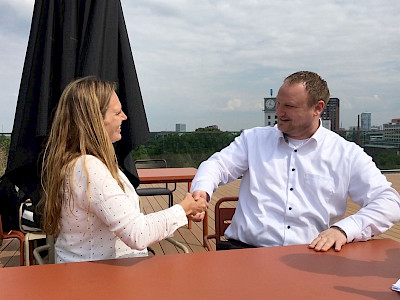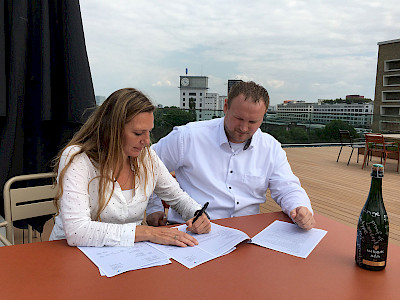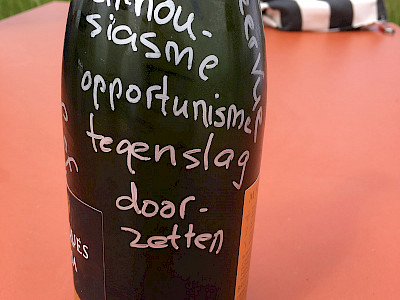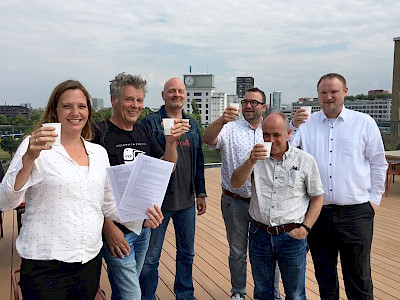PeerVue: studenten oordelen zelf
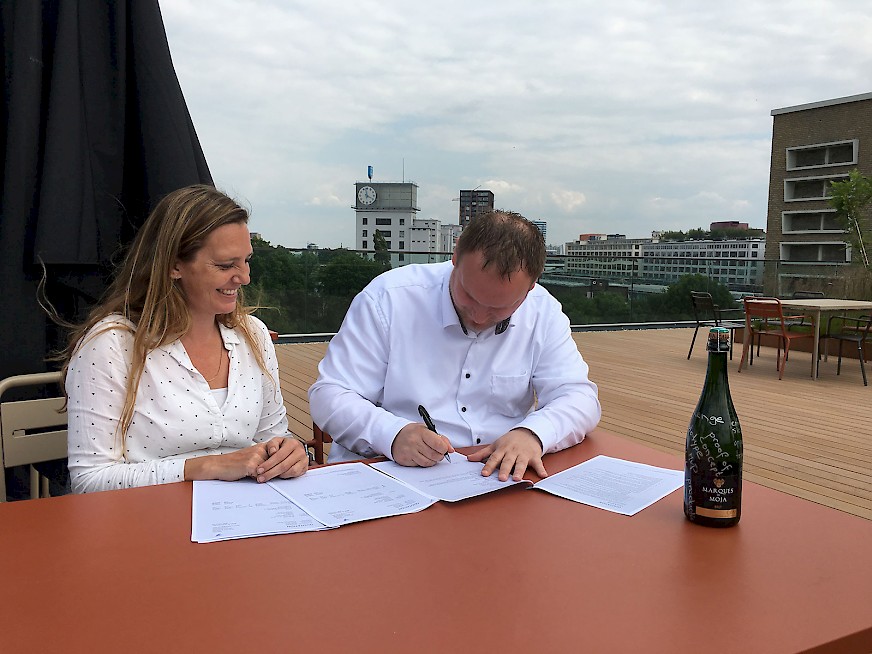
To explain better: On Friday 21 June, innovation network iFontys signed a contract for PeerVue, a peer feedback tool developed by (former) students of Fontys University of Applied Sciences ICT. The ambitious students Peter van Berlo and Ryan Royer were at the cradle of the system years ago. As participants in the Data Driven Business Lab minor, they set to work with new, stubborn and contemporary education in line with the SEAL didactics (Social Engaged Action Learning). The didactics and the minor give the students the opportunity to work within a set of learning objectives on their own and idiosyncratic projects with so-called 'wicked problems' or vicious issues.
Since the minor is about data-driven processes, it may be logical that there is now a tool. And that the students started brainstorming about a feedback tool at all. Because the question that occupied students such as Ryan and Peter was: "How can you, as a student, assess whether learning objectives have been achieved?". What soon became clear was that they preferred to do it themselves.
It all started very small, unpretentious and logical. In Excel. Actions that were carried out to prove learning objectives were literally, but accurately categorized. The students were convinced that they had the best insight into each other's work and results. Without a teacher. Without a red pen. Without pages of well-meaning teacher talk. No, the students gave each other feedback based on the work that was done and how much impact that had on the project. They also indicated what and how much they had learned from this together.
Excel was exchanged for a self-built web application. The tool provided a lot of insight. The number of actions, the number of assignments, but especially the growth that students made in relation to the learning objectives. At the end of the minor, the students were given the opportunity to further develop the application under the guidance of innovation network iFontys. The importance for iFontys lay in the lack of supporting applications within the form of education in which SEAL education is located.
In order to be able to place innovation in education, the innovation network has provided a clear picture of different types of education (didactic parcels). Each type requires its own support of technology, according to iFonty member Adri Cornelissen. "For example, a timetable for SEAL education is not necessary at all and an LMS is less suitable for use. This has to do with the characteristics of the type of education. Within SEAL, ownership of the student is important. Peer feedback and this tool are indispensable and invaluable." Within iFontys, they are convinced that the tool facilitates educational innovation.
Back to PeerVue and the contract. After an instructive and bumpy test phase, Ryan, Peter and PeerVue continued as startups. The company ShareWorks - also known from Projectcampus - has given the product the opportunity and supported it in preparing it for production. Former students Ryan and Peter are still one hundred percent behind the made product. They have developed this PeerVue for students to create a real learning experience through feedback and active coaching. That's how they experienced it and that's how every Fontys student can experience it, according to the duo. A perfect round circle.
More info about iFontys or SEAL: fontys.nl/KennisNetwerk/Ontwikkelingen/iFontys.htm
More information about PeerVue: a.cornelissen@fontys.nl
